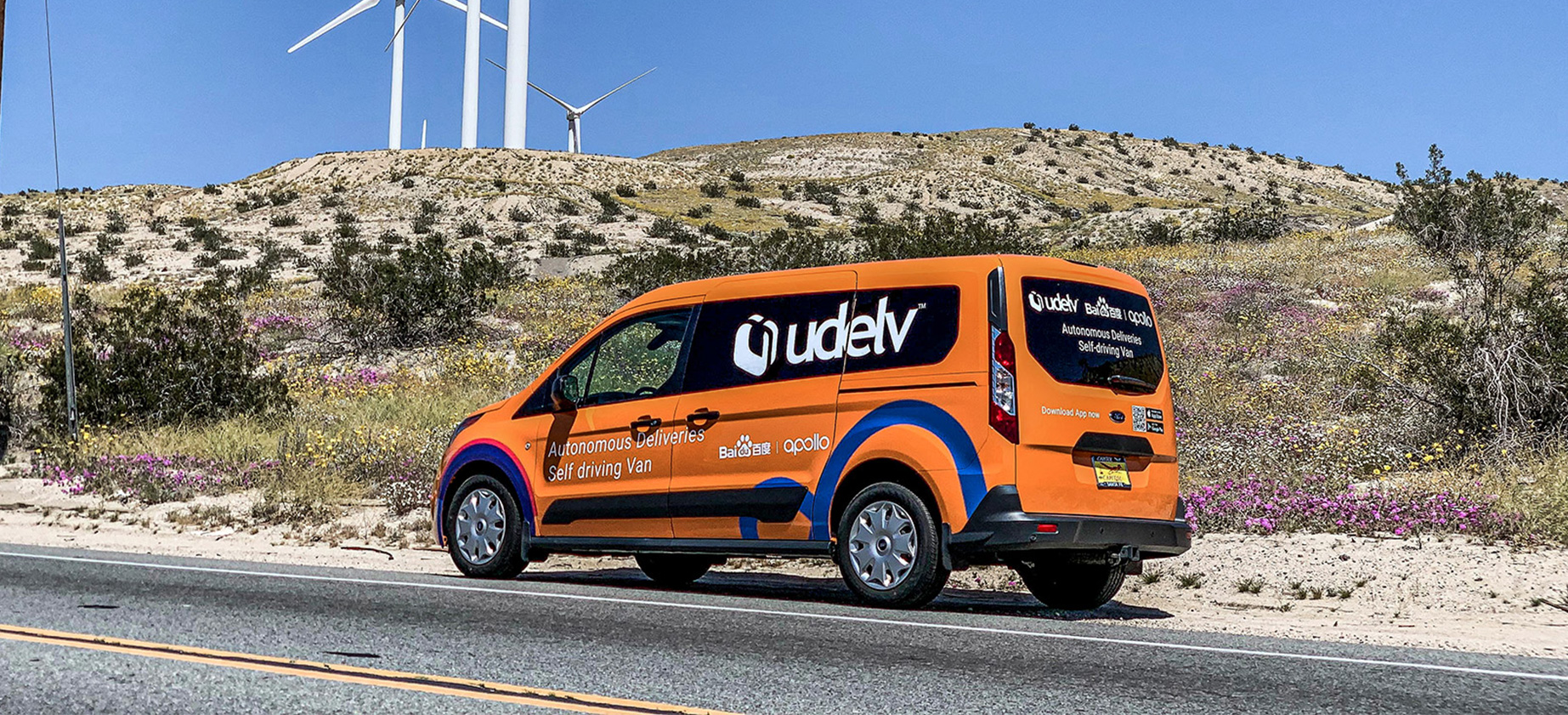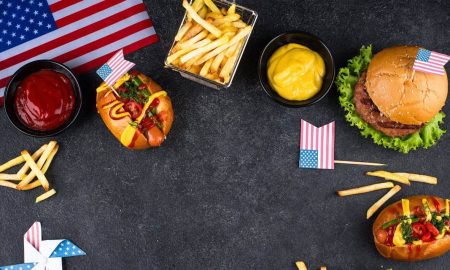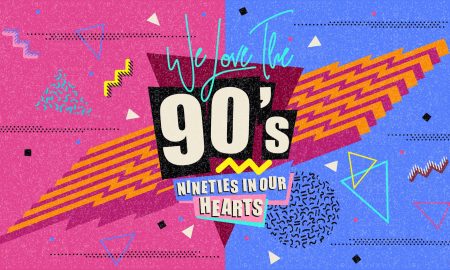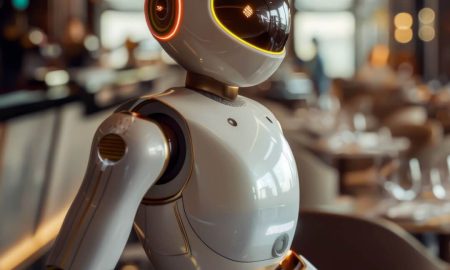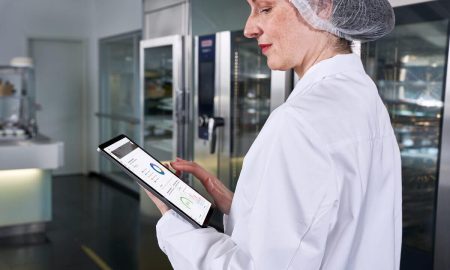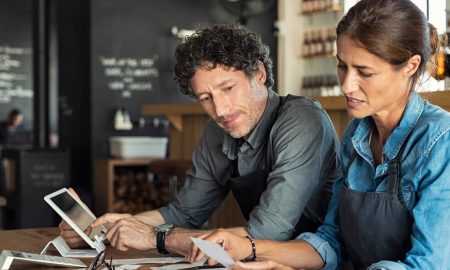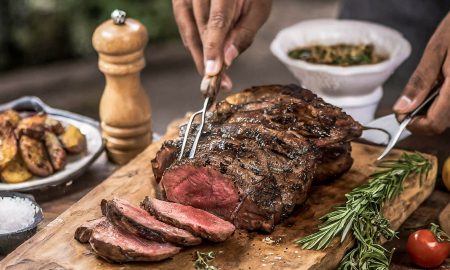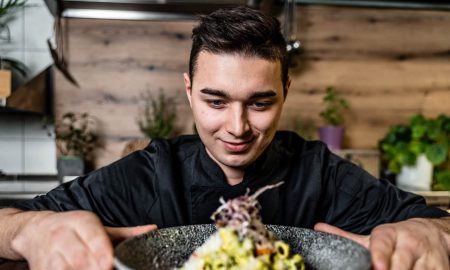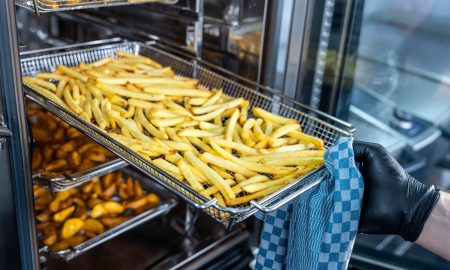A functional single-story building in an industrial area of Burlingame, surrounded by car washes and fast-food restaurants. San Francisco International Airport is just a few minutes away. Inside, the space has the standardized flair of an office-furniture catalogue. Around a dozen programmers and developers are scattered throughout the open-plan office, practically invisible behind their double- and triple-monitor setups. The young company moved in here just four weeks ago, so there’s an air of excited anticipation.
Daniel J. Laury and his partner Akshat Patel are working at top speed to develop their autonomous food delivery service. Udelv – shorthand for “you deliver”, is targeted at grocery stores wanting to get food to their customers’ homes. “We’re in the middle of a transportation revolution, just like back when the automobile replaced the horse and carriage.” CEO Daniel J. Laury, 56, currently wearing an orange Udelv vest over a blue button-down shirt, is absolutely convinced that autonomous driving will change the world. Laury, a French national, has already invested in a wide range of industries, but he’s been focused on high-tech mobility since late 2016. His Indian-born partner, Akshat Patel, handles the technology side of the business. The tall, slim 29-year-old cut his engineering teeth at Tesla and Apple before joining Laury on a quest to develop second-generation driverless delivery vehicles
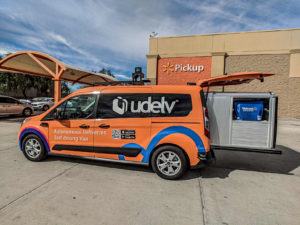
Image: Udelv
Udelv is considered a pioneer in the field of autonomous delivery service. “Whenever new mobility models were developed in the past, the transportation industry was always first in line.” Laury speaks English with an almost imperceptible French accent. “Before the world trusts autonomous vehicles to transport people, they’ll be used to transport goods.” At Udelv, it all started with a small electric car veering through neighborhoods at a top speed of 25 miles per hour. “Every Udelv vehicle has 18 compartments,” Laury says, “and uses Lidar technology to navigate without a driver. Customers get push notifications telling them that their stuff is arriving, and then they use a code to open the compartment reserved for their order.” Both the hardware (the vehicle with the storage compartments) and the software (the operating system) were developed by Udelv staff.
Second-generation vehicles are based on a Ford chassis with a normal combustion engine. The new delivery vans can reach speeds of up to 60 mph, so they have a larger range and can travel on highways. “That obviously expands our radius of action by a great deal.” Delivery meals and groceries can be kept cold or warm inside the storage cabinets for up to two hours. “Refrigeration is more problematic than keeping warm. Right now, we’re doing a lot of business in Arizona, where summer temperatures can reach 110 degrees or more. On those days, we put ice packs in the lockers as well, to keep frozen goods from thawing out and so on. We’re primarily delivering groceries at the moment, after all. Soon, though, we’ll be expanding to include hot meals, flowers, and medications as well. It’s all in there.”
Laury says there’s a simple explanation for why these particular states are so popular within their industry right now. “All of the big automotive and tech companies are testing their driverless cars in Arizona and Texas, because here you don’t need a permit to use autonomous vehicles.” So far, Google subsidiary Waymo is the only company authorized to operate driverless vehicles in California, But Udelv hopes to accrue enough test-driving miles by the end of the year to be allowed to start operating in the Bay Area as well.
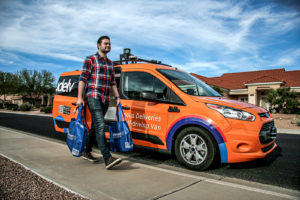
Image: Udelv
The biggest challenge they’re currently facing: mapping. “In the areas we operate in, we have to drive and digitize every single street – every lane, every driveway, every traffic light, they all have to be mapped,” Laury explains. “It’s very expensive, and it takes up a lot of time and personnel resources.” Google finished doing that particular variety of homework years ago, of course.
So which of them will be the first to apply the ground-breaking technology on a large scale? Does a 30-person start-up have a chance against tech and automotive giants over the long term? Laury is optimistic: “As yet, we don’t have any direct competition on last-mile and middle-mile delivery, though Ford, GM and Daimler are all working on similar models.” Even so, Udelv already has their sights set on two big-name potential customers: “Right now, we have a fleet of five vehicles,” he says. “Two of them are currently part of a pilot project with Walmart in, surprise, Phoenix. Over the next seven months, we plan to expand from 30 people to 150, and to add around 15 vehicles to our fleet. Medium-term, that could grow to as many as 100,000.” Living in the US has taught Daniel Laury to think big… but with customers like Walmart on the horizon, those kind of dimensions really do seem plausible.


